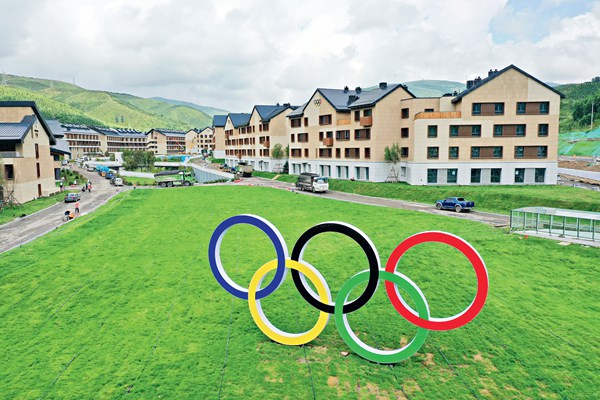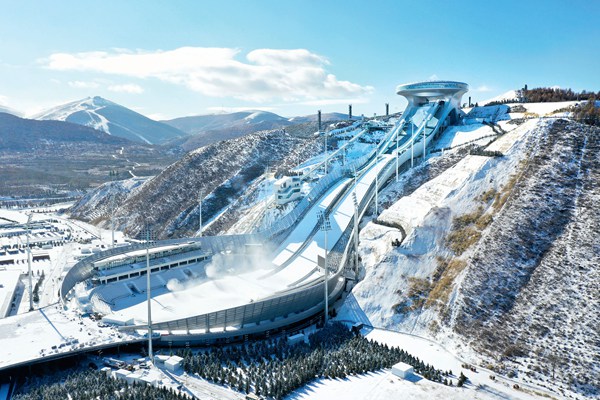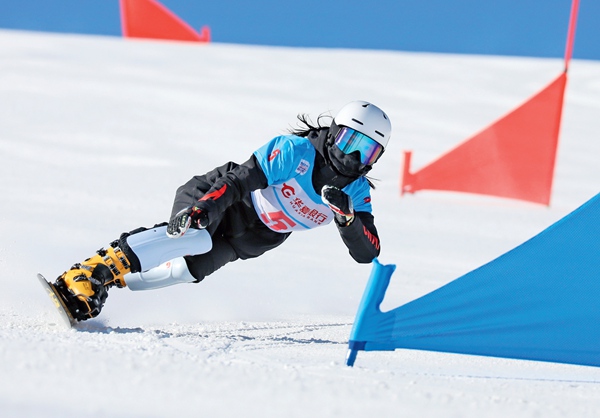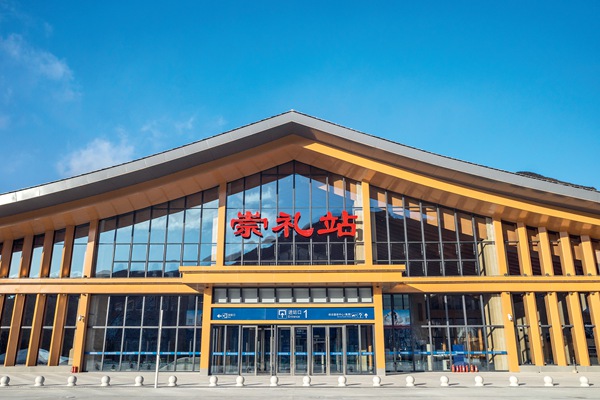Zhangjiakou Ready for 'Green' Winter Olympics

"Green" is the keyword for the 2022 Beijing Winter Olympics. Adhering to the principle of green, low-carbon and sustainable development, Zhangjiakou, the city cohosting the 2022 Beijing Winter Olympics, is vowing to make the event as environmentally sustainable as possible, and is vowing to meet the goal of holding a carbon-neutral Olympics with sustainability.

Zhangjiakou, in North China's Hebei Province, is about 200 kilometers northwest of Beijing. The high-speed railway line connecting Beijing and Zhangjiakou, which went into operation on December 30, 2019, has reduced the travel time between the cities to 47 minutes, from more than three hours.
The Beijing 2022 Winter Olympic Games will take place in Beijing and Zhangjiakou from February 4-20, followed by the Winter Paralympics, from March 4-13.
Venues in the Zhangjiakou Competition Zone, located in Zhangjiakou's Chongli District, will host most of the ski and snowboarding events, including freestyle skiing, cross-country skiing, ski jumping, and the Nordic combined and biathlon. Venues include Genting Snow Park, the National Biathlon Center and the Nordic Center (containing the National Ski Jumping Center and the National Cross-Country Center).
In 2020, the Beijing Organizing Committee for the 2022 Winter Olympics Games released a sustainability plan, which vowed the Games would be in line with the UN's sustainable development objectives to hold "green, inclusive, open and clean" events.

To meet the goal of hosting a "green" Winter Olympics, Zhangjiakou constructed sustainable venues that can be utilized after the Games. All of the venues, and the Olympic Village, will be adjusted for post-
Olympic utilization and converted into an Olympic Park, to ensure the facilities are utilized after the Games.
The National Ski Jumping Center will hold the ski jumping and Nordic combined events. With two sizes of slopes hurtling down the mountain, the center has an S-shaped curve that resembles the shape of ruyi, a traditional Chinese ornamental object for luck. Therefore, the center is nicknamed Snow Ruyi.
Genting Snow Park will host the freestyle skiing and snowboarding competitions. Zhangjiakou Winter Olympic Village, which will accommodate athletes, coaches and officials during the Games, is just a few minutes from Genting Snow Park. The village has been designed and constructed to the highest standards, to ensure green and sustainable housing.
A premodern archeological site, from the Jin Dynasty (1115-1234), was found near the construction area, as the six hectares of the site overlapped the Olympic Village. To protect the landscape and historical culture, the design team relocated the village about 200 meters to the east.


Within 44 hours of the end of the Winter Olympics, the village will be modified, to provide barrier-free facilities, such as wheelchair ramps and accessible toilets, for athletes and officials participating in the Paralympics.
After the Games, the rooms in the village will be converted into ski lodgings for winter sports lovers. Such sustainable arrangements will avoid the dilemma of many past Olympics, in which the host cities let their costly venues lie idle, says Wang Yanxia, a member of the Beijing Organizing Committee for the 2022 Olympic and Paralympic Winter Games.
Renewable energy will also play an essential role in achieving a "green" Olympics. All of the 2022 Winter Olympics' venues will run on green energy, which will be the first time in the history of the Olympic Games.
The Zhangbei flexible, direct-current, power-grid project is situated on the outskirts of Zhangjiakou, and workers recently completed the annual assessment of the grid. The project, put into operation in 2020, can deliver 14 billion kilowatt-hours of electricity to Beijing annually, and all of that energy is generated by wind, photovoltaic, and other green and clean power sources. That means the project is capable of supplying the power needs of all 26 venues of the 2022 Winter Olympics.
The transmission line, which cost nearly 12.5 billion yuan (US $1.92 billion), is the world's first renewable-energy-based, flexible-direct-current-power transmission system.
The Beijing Winter Olympics has resulted in several positive changes in Zhangjiakou, in terms of transportation, the ecological environment, green industry, winter sports and people's incomes. Zhangjiakou has accelerated the construction of its low-carbon hydrogen-transportation system, to push for a greener Winter Olympics. To date, more than 400 hydrogen fuel cell electric buses have been put into operation in the city.
With its abundant renewable resources, Zhangjiakou, China's first national-level renewable-energy demonstration area, is betting big on the clean-energy industry. The city is keen on inaugurating the 2022 Winter Olympic Games, to showcase its green legacy after successfully completing several renewable power and transportation projects.
Photos Supplied by VCG
(Women of China English Monthly December 2021 issue)
Please understand that womenofchina.cn,a non-profit, information-communication website, cannot reach every writer before using articles and images. For copyright issues, please contact us by emailing: website@womenofchina.cn. The articles published and opinions expressed on this website represent the opinions of writers and are not necessarily shared by womenofchina.cn.






.jpg)

 WeChat
WeChat Weibo
Weibo 京公网安备 11010102004314号
京公网安备 11010102004314号